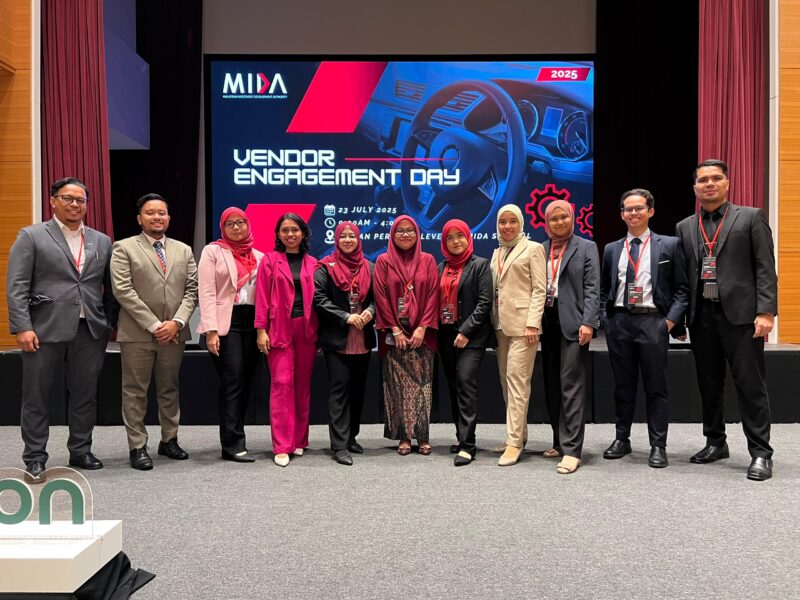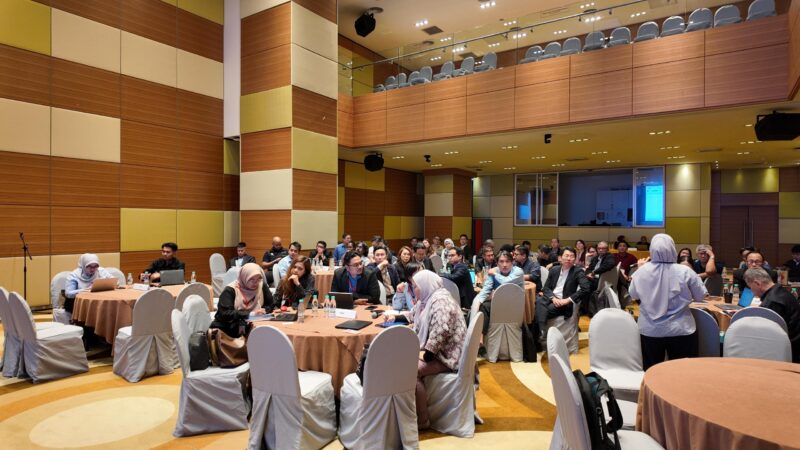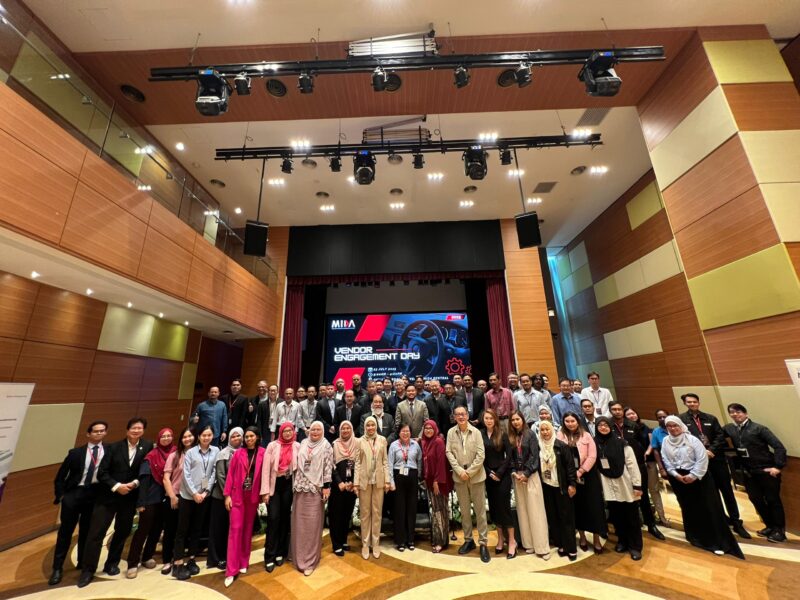
This site
is mobile
responsive

On July 23, 2025, the Transportation Technology Division of MIDA hosted a Vendor Engagement Day at Perdana Hall, MIDA Sentral. The event underscored Malaysia’s strong commitment to strengthening its automotive supply chain and fostering deeper collaboration across the industry ecosystem.
The programme placed particular emphasis on enhancing localisation efforts, with the goal of driving greater value-added assembly and manufacturing activities within the country. By moving beyond basic operations, Malaysia aims to cultivate a more resilient and competitive domestic supply base capable of meeting global standards.
In her welcoming remarks, Ms. Suziyanti Saad, Director of the Transportation Technology Division, highlighted the pivotal role of vendors in ensuring the sustained growth and success of Malaysia’s automotive sector. She stressed that the continued support and upgrading of vendor capabilities are vital for the industry to capture new opportunities, address technological gaps, and remain competitive in an increasingly dynamic global market.
A significant portion of the event addressed “pass-through” localisation, where components are only lightly processed or repackaged locally without meaningful value addition. Such practice undermines genuine local content development. The insights and feedback gathered from the event will help guide the government in strengthening its support for authentic localisation efforts. In addition, Ms. Faza Sakinah, Assistant Director of the Transportation Technology Division, presented “Malaysia Moving Towards Sustainable Investment”, outlining government facilitation measures for automotive projects.
A discussion was held, moderated by Ms. Sudiana Muhamad Nawati, Deputy Director of the Transportation Technology Division, involving 32 vendor companies specialising in Body, Interior, Chassis, Electronic, and Powertrain (BICEP) components. The primary aim of this session was to understand the challenges vendors face in achieving the 30% localisation content target. This target, part of Malaysia’s efforts to develop its domestic automotive industry, aims to encourage the use of locally produced parts and components, which often face challenges related to cost, quality, technology gaps, and the availability of local suppliers for specific high-tech components.
The presence of key representatives from MITI and Malaysia Automotive Robotics & IoT Institute (MARii), core members of the Automotive Business Development Committee (ABDC), significantly enriched the discussions. The ABDC is a strategic committee chaired by MITI, with representatives from the Ministry of Finance (MoF), Royal Malaysian Customs Department (RMCD), MARii, and MIDA. Their role involves evaluating and recommending customised incentives for automotive investments, based on factors like localisation, production volume, technology transfer, and supply chain development, ensuring alignment with the National Automotive Policy (NAP) 2020.

MIDA reiterated its steadfast commitment to working hand in hand with Original Equipment Manufacturers (OEMs) and automotive vendors, not only to support but also to strengthen the capabilities of local automotive component manufacturers. This includes facilitating access to advanced technologies, encouraging the adoption of international best practices, and promoting knowledge transfer to bridge existing gaps in skills and expertise. By doing so, MIDA aims to empower Malaysian companies to move up the value chain, produce high-quality components that meet stringent global standards, and position themselves as competitive players in the international automotive supply chain.
